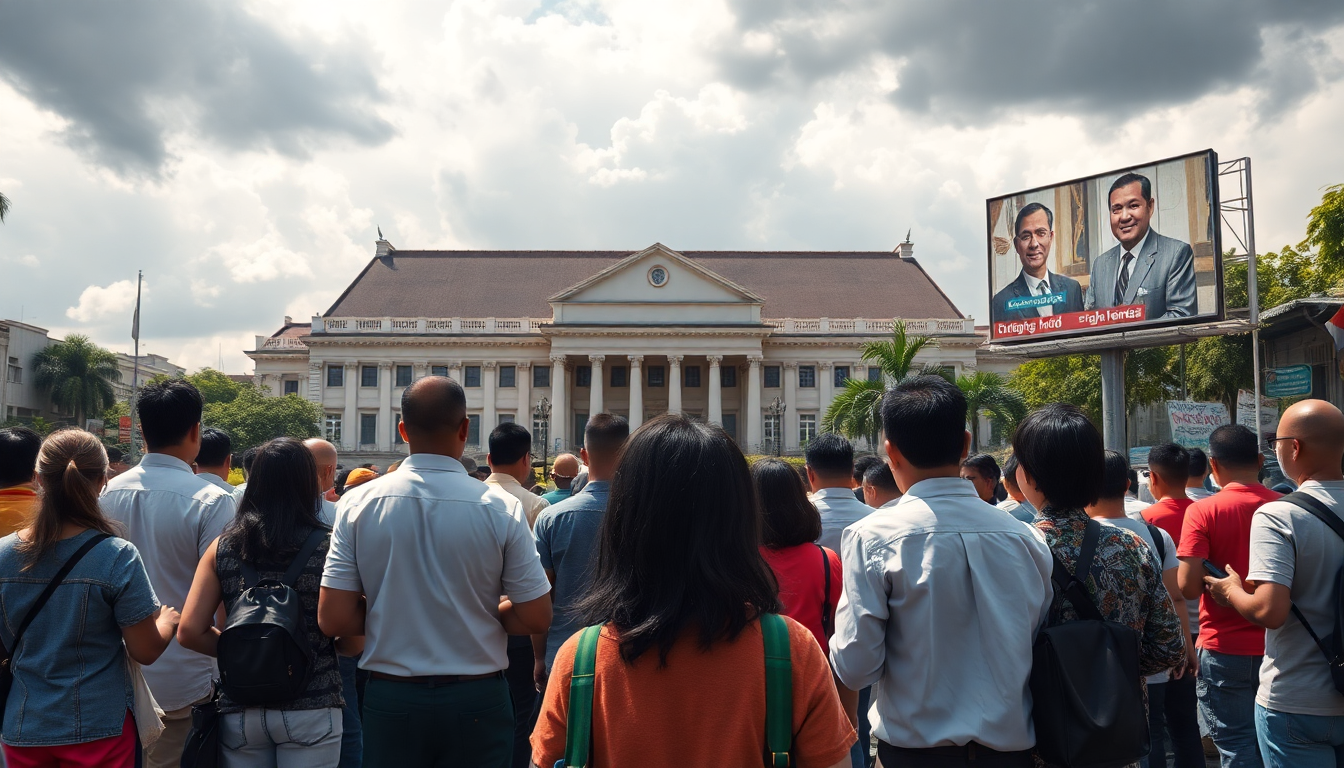Table of Contents
In an astonishing twist, Thailand has appointed its second interim prime minister in just a few days. This whirlwind change follows a controversial court ruling that led to the suspension of the current leader, Paetongtarn Shinawatra, amid ethical allegations linked to a scandal involving a prominent Cambodian figure. What does this rapid succession say about the state of Thai politics? It certainly raises eyebrows and concerns about governance and the future of leadership in the country.
The Rise of Interim Leadership
Phumtham Wechayachai, formerly the Interior Minister, has now taken on the role of caretaker prime minister. His appointment came just two days after Paetongtarn was barred from her duties due to serious allegations involving a leaked phone call with Hun Sen, Cambodia’s influential ex-leader. This conversation aimed to ease border tensions following a violent incident that tragically resulted in the death of a Cambodian soldier. However, it has ignited a wave of criticism in Thailand, especially after Paetongtarn casually referred to Hun Sen as “Uncle” and made remarks about a Thai military commander.
The Constitutional Court has accepted a petition from a group of 36 senators, claiming that Paetongtarn violated constitutional ethics during her discussions with Hun Sen. With the court suggesting there’s enough cause to suspect a breach of ministerial ethics, an investigation is now underway. The fallout from these developments is significant, impacting not just the current leadership but also the overall political stability of Thailand.
The Broader Political Context
Before her suspension, Paetongtarn had been trying to secure her position by appointing herself as the culture minister in a newly formed cabinet. However, her government has faced considerable challenges, particularly with the economy. Recent opinion polls show her popularity has taken a nosedive, plummeting from 30.9 percent in March to a mere 9.2 percent by late June. This decline highlights the uphill battle her administration has in revitalizing Thailand’s struggling economy, a situation made worse by the ongoing political turmoil.
Complicating matters further is the legal scrutiny surrounding Paetongtarn’s father, former prime minister Thaksin Shinawatra. He is currently entangled in a royal defamation lawsuit, which adds another layer of complexity to the already intricate political dynamics within the Shinawatra family—a clan that has long been influential in Thailand’s political scene. Thaksin continues to deny the charges while maintaining his loyalty to the monarchy.
A Future Uncertain
The rapid changes in leadership prompt critical questions about Thailand’s political future. The constitutional court’s ongoing investigation into Paetongtarn’s alleged ethical violations could have significant repercussions, not just for her career but also for the stability of the government as a whole. With the Supreme Court preparing to review Thaksin’s hospital detention, the outcomes could dramatically reshape the political landscape in the months ahead.
As these events unfold, the citizens of Thailand are watching closely, many expressing concerns about the implications for governance and public trust. This situation serves as a stark reminder of how fragile political systems can be, and how quickly leadership can change, especially in a country with such a rich and complex political history. The next steps taken by the interim leadership will be pivotal in determining the direction of Thailand’s governance and economy. Will they rise to the occasion, or will the instability continue?


